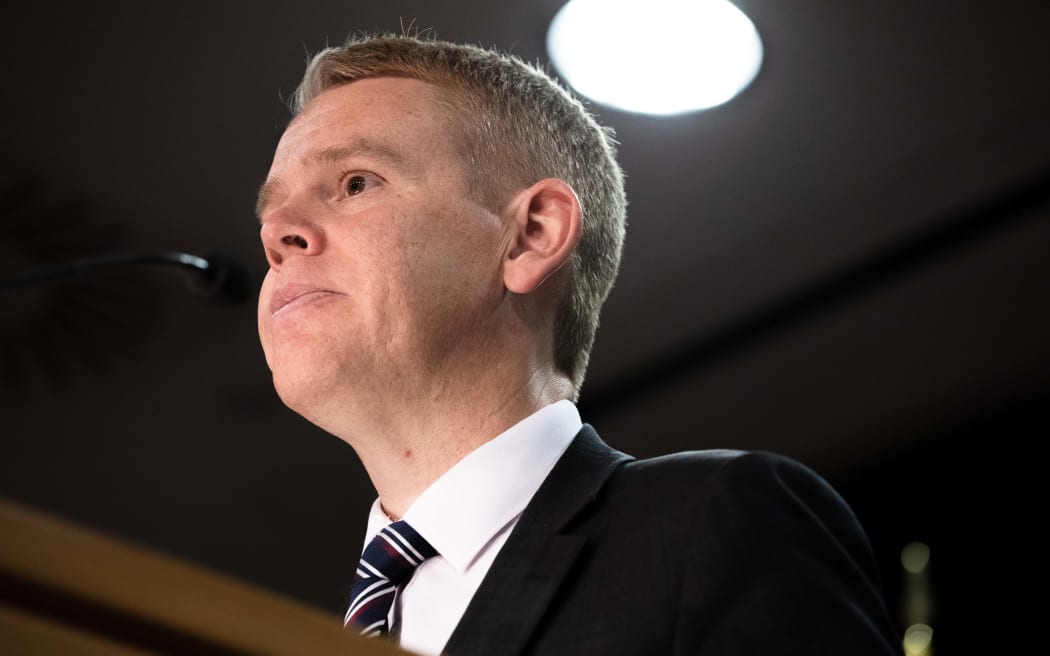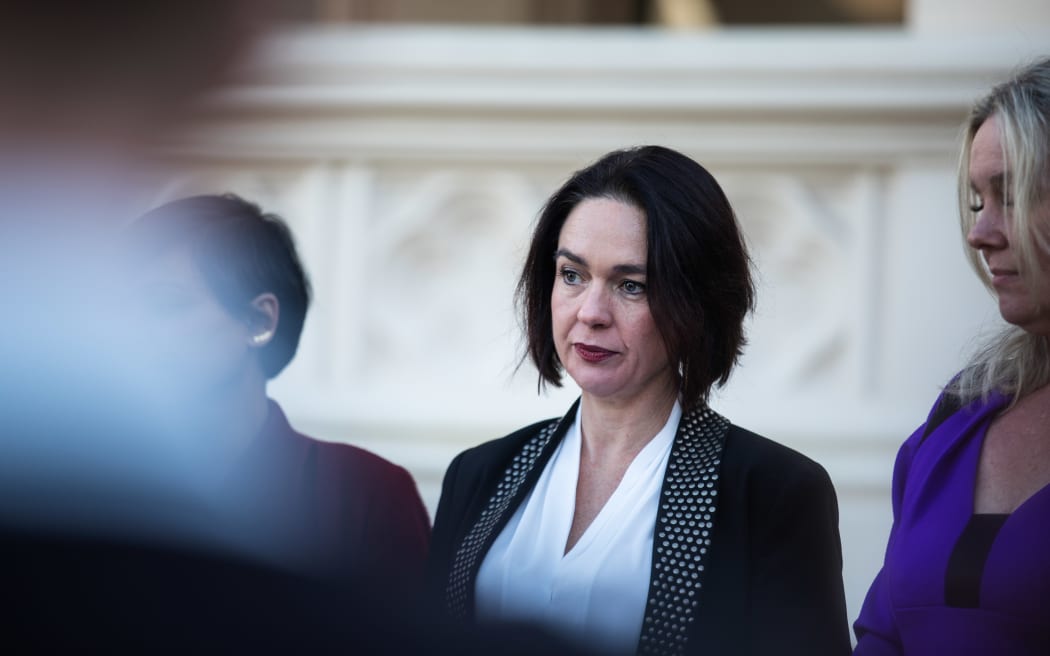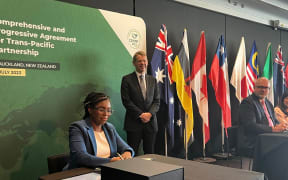The government is introducing a tranche of changes to crack down on an increase in crime.
The government is making adults encouraging young people to offend and posting offending behaviour online aggravating factors in sentencing.
Prime Minister Chris Hipkins announced the changes at Monday's post-Cabinet media briefing.
The so-called 'social media amendment' will apply to adults and young people and provide courts with an additional consideration when sentencing.
Other changes will be that the Family Court will be given the ability to require - not request, as it does now - children and young people from the age of 10 who commit offences to undertake community activities, such as cleaning graffiti and picking up rubbish.
It will also be able to require that they attend an educational, recreational or activity programme.
As for victims, they will be entitled to attend Care and Protection Family Group Conferences for the first time in relation to children over 10. It will force the offender to confront the victims.
Hipkins said the changes focused on prevention, protection and accountability.
"None of this is about locking up children and perpetuating the cycle of crime. It's about accountability and consequences to help break the cycle of offending.
"We'll continue the careful and intensive work we're doing to prevent young people from undertaking crime in the first place.
"We'll also continue to work on policies and legislation against the gangs that are proven to work and are working.
"I acknowledge youth crime is an increasing concern in many parts of New Zealand. Kiwis have had a gutsful of people acting as if the rules don't apply to them and I've had a gutsful of that as well. The system needs a shake up.
"We'll back our police to respond faster and give them more tools to better protect our communities and there will be a sharper focus on consequences and greater accountability for offenders by tightening up gaps in current law and we will also be reforming parts of the system as well."

Chris Hipkins Photo: Angus Dreaver / RNZ
Hipkins said the government had been working on these proposals for some time and there were more to come.
Building boot camps or youth jails for young offenders as National and ACT proposed only served to turn young offenders into hardened criminals when they were released, he said.
"That type of policy does not break the cycle. We know that because they've tried it before and it failed when they tried it the first time.
"The gangs need to hear the message loud and clear that they cannot act with impunity. The balance has shifted. There are consequences for their actions. The New Zealand community has had enough of this type of offending, So have I."
On retail crime, Hipkins said police had been "very" proactive at identifying offenders and arresting them, but there were gaps and the government was working to close those.
He said intensive intervention programmes introduced last year had helped lower reoffending but the rate was still high.
"This builds on the work we put in place last year. I'm not going to rest until we actually see this problem tackled."
Hipkins wanted the bill passed through all stages before the election, but did not think that would happen due to the time left.
Bringing elements of the youth justice system to younger offenders meant there would be more tools available for accountability and intervention, he said.
"One of the comments I've heard quite a bit from police around the country is that they get frustrated by those kids in that 10 -14 age bracket, where they feel like their hands are tied a bit behind their back until those kids hit the age of 14 and then they can do more things (to hold them accountable).
"Some of the changes we're making here will unlock the ability for police to do more, for the system to do more, to prevent those kids from going on to a pattern of reoffending."
He said the government would reach out to social media companies as well, to look at whether there was more they could do to stop the cycle of sharing videos showing law-breaking behaviour.
"Having said that, there are limits to what we can do and there are probably limits to what they can do as well. We've had several conversations about that (talking with social media companies).
"Ultimately, social media companies shouldn't be rewarding young people to circulate video clips where they're breaking the law."
Police Minister Ginny Andersen said in a statement the government was also boosting the prosecution service with an additional $26 million to help clear the case backlog in the district courts.
"This funding will allow Police to add up to 78 full-time equivalent staff to prepare their in-court work against those who've committed serious crimes," Andersen said.
She told Checkpoint young offenders who targeted expensive goods had to pass on those high-end products somewhere, and not necessarily just to each other.
"We know there's a mix of not just gangs, but adults, who are involved and it's really important that those people know that's absolutely unacceptable."
Last year, police looked into 63 young ram raiders and found only three had gang connections. Andersen's briefing as incoming police minister said there was no evidence that the offending was being driven by youth gang affiliation or membership.

Ginny Andersen Photo: RNZ / Samuel Rillstone
She clarified this was about adults in general who encouraged children to offend, rather than just gangs.
"It's not just organised crime, but it's also adults, and some of those instances, particuarly around ramraid offending, we're seeing older siblings commissioning young people, as young as 10, into doing offences."
The 'social media amendment' was also one of National Party's proposed policies. Andersen and Hipkins both said they had been working on this for quite some time, prior to his recent trip to China.
"It's good to see they'll support us in it, hopefully they can throw their support behind some of the other effective law and order policies instead of focusing ones that don't work like boot camps."
Hipkins was speaking to media on Monday after returning to New Zealand last Friday from a trip to Brussels for the signing of the NZ-EU Free Trade Agreement and Lithuania for the NATO summit.
Hipkins was also in Auckland for a Comprehensive and Progressive Agreement for Trans-Pacific Partnership (CPTPP) meeting, where the UK officially become the first new CPTPP signatory outside the original grouping.






